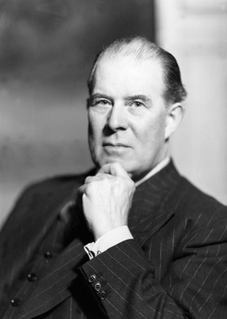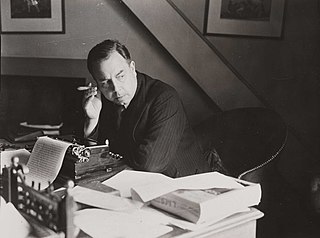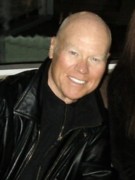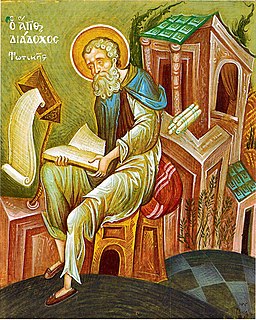A Quote by George Berkeley
Upon the whole, I am inclined to think that the far greater part, if not all, of those difficulties which have hitherto amused philosophers, and blocked up the way to knowledge, are entirely owing to our selves. That we have first raised a dust, and then complain, we cannot see.
Related Quotes
Confronted with such a variety most philosophers try to establish one approach to the exclusion of all others. As far as they are concerned there can only be one true way- and they want to find it. Thus normative philosophers argue that knowledge is a result of the application of certain rules, they propose rules which in their opinion constitute knowledge and reject what clashes with them.
The modern technological world appears overwhelming to many people. It drives some to pessimism and despair. It makes others doubt the future of mankind unless we retreat to simpler lives and even to the ways of our ancestors. What these people fail to realize is that we cannot go back to those ways and those days. Furthermore, for all our difficulties, life today is far better for more people and the possibilities for the future can be brighter than ever if we develop not only new knowledge, but a greater faith and confidence in the human mind and spirit.
There are some places which, seen for the first time, yet seem to strike a chord of recollection. "I have been here before," we think to ourselves, "and this is one of my true homes." It is no mystery for those philosophers who hold that all which we shall see, with all which we have seen and are seeing, exists already in an eternal now; that all those places are home to us which in the pattern of our life are twisting, in past, present and future, tendrils of remembrance round our heart-strings.
A man's first care should be to avoid the reproaches of his own heart; his next, to escape the censures of the world: if the last interferes with the former, it ought to be entirely neglected; but otherwise there cannot be a greater satisfaction to an honest mind, than to see those approbations which it gives itself seconded by the applauses of the public.
We create an image of who we are inside our self. The image then becomes very deeply entrenched, and it becomes the thing that we attribute responsibility to - we say "I", "I" did this because "I" wanted to, because "I" am a good person or because "I" am a bad person. The loop is the fact that we represent our selves, our desires, hopes, dreads and dreams: it is the way in which we conceive of ourselves, rather than the way we conceive of Mount Everest or of a tree. And I say it exists entirely in the loop: the self is an hallucination hallucinated by an hallucination.
The moment when a man's head drops off is seldom or never, I am inclined to think, precisely the most agreeable of his life. Nevertheless, like the greater part of our misfortunes, even so serious a contingency brings its remedy and consolation with it, if the sufferer will but make the best, rather than the worst, of the accident which has befallen him.
But the point is, now, at this moment, or any moment, we're only cross-sections of our real selves. What we really are is the whole stretch of ourselves, all our time, and when we come to the end of this life, all those selves, all our time, will be us - the real you, the real me. And then perhaps we'll find ourselves in another time, which is only another kind of dream.
We are the dead. Our only true life is in the future. We shall take part in it as handfuls of dust and splinters of bone. But how far away that future may be, there is no knowing. It might be a thousand years. At present nothing is possible except to extend the area of sanity little by little. We cannot act collectively. We can only spread our knowledge outwards from individual to individual, generation after generation. In the face of the Thought Police there is no other way.
I would like to see ... an entirely different procedure which is that we vote on the budget and decide how much we are going to spend, first, the way any family does, and then fit our priorities into what we think we have to spend. Instead, what we do, is to do it incrementally, starting at the bottom, adding and adding and adding. ... Until we get the support of all the authorities in this House to decide, first, what we think this country can afford and then decide where the amount is going to be allocated, we will never have common sense in this House.
The reason that we have both good and wicked thoughts together is not, as some suppose, because the Holy Spirit and the devil dwell together in our intellect, but because we have not yet consciously experienced the goodness of the Lord. As I have said before, grace at first conceals its presence in those who have been baptized, waiting to see which way the soul inclines; but when the whole man has turned toward the Lord, it then reveals to the heart its presence there with a feeling words cannot express.







































